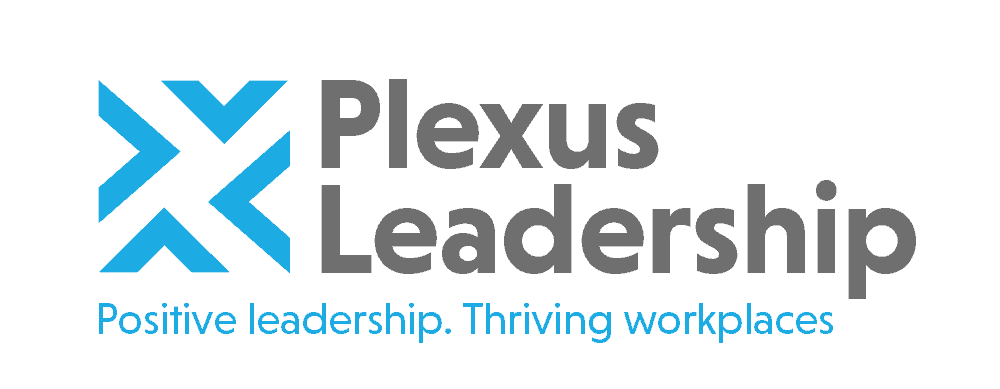Even the best leaders can derail when they lack self-awareness and don’t minimize their performance risks and potential derailment factors as they progress into more senior roles. There are a wide range of derailers beyond failing to meet their business objectives that leaders need to be aware of. Here’s what our own experience, together with decades of research, suggest are the biggest problem areas:
Overuse or poor use of strengths
It may come as a surprise to many that the majority of leaders don’t fail because of obvious competency weaknesses or skill shortfalls. They fail because of overdrive risks associated with using their strengths too much or in the wrong way. Yet research shows that most leaders remain totally unaware of their overdrive risks and how these undermine performance.
If you wish to find out more about risks arising from overused strengths among leaders and managers watch this short video
A common example of this often arises in leaders having strong levels of confidence, or belief in their abilities and judgement. When used well, this strength helps them make clear decisions and manage effectively, particularly during periods of rapid change and high uncertainty. However, there is a fine line between confidence and arrogance. Arrogant leaders believe they are right and others are wrong; they stop listening and involving others so strong is their belief in their own abilities and judgement. When taken to the extreme, overconfident leaders become increasingly obsessive about driving their own agenda and try to force through their decisions and ideas, undermining trust, respect and morale of those around them.
Lack of agility
Many leaders derail because they are unable to develop or adapt, they get left behind as the organization and environment evolves and changes. With the increasing magnitude and pace of environmental changes, including digital technologies and AI reinventing the way work is done, this will become an increasingly common source of derailment. Leaders who aren’t curious and open to change and don’t experiment with new technologies and ways of working are those most at risk. They can’t afford to have a “fixed mindset” and resist learning new skills otherwise they will become casualties of the digital age we have entered.
Other leaders struggle to adapt to a new boss, executive or other key stakeholder(s) with a different style and approach. They dig in and fail to develop a good working relationship with their boss and/or key stakeholders because they lack the interpersonal flexibility and range of communication and influencing skills required at more senior organizational levels.
Problematic interpersonal skills
Research shows that this is one of the most common sources of derailment. Problems often arise because as leaders move into more senior positions, they can no longer reply on their specialised knowledge and task-based management approach that worked for them earlier in their career. The need to build and maintain a complex network of working relationships and engage and influence people with a diverse range of styles, perspectives and backgrounds. They also need to navigate what is often a complex political environment where engaging people to support their ideas and opinions is often just as important as the solution itself. Problems with interpersonal skills are often loosely labelled “low emotional intelligence” by HR and top management and include common problems like being overly critical, bullying behaviours, the inability to control one’s temper and cold, insensitive behaviour.
Inability to build a strong team
Leaders who are unable to hire the best talent and build strong teams are unlikely to succeed, particularly when they move into more senior positions. Common problems include:
- Failing to hire strong, diverse talent
The best leaders learn to challenge subjective and unconscious bias during the hiring process. They put in place hiring processes that pinpoint the best talent using objective interview and assessment methods, including psychometric testing. They also surround themselves with complementary and diverse people rather than hiring clones who are unlikely to challenge them.
- Inability to engage and lead a team
Leaders who succeed inspire others with a clear, meaningful picture of future success. They usually have engaging personalities and build trust and respect through involving, empowering and supporting others, rather than using directive and coercive methods to achieve their goals.
- Poor management of underperformance
Leaders need to build skill and confidence to deal with poor performers in order to succeed otherwise results will suffer and team morale will deteriorate. They need to have candid conversations with people about areas of underperformance and provide support, direction and coaching to help them improve. However, they also need to act decisively when performance problems can’t be resolved, including firing people with the support of HR when necessary.
Poor personal energy management
The demands and pressures on leaders have never been greater. The pace and complexity of change is growing exponentially, and this puts enormous mental, emotional and physical pressure on leaders. This is one reason why the wellbeing and mindfulness movements have grown so rapidly in recent years. Leaders who don’t look after their wellbeing and capacity to manage their demands are more susceptible to burning out. A lot of research during the past decade has shown that leaders who don’t manage their energy and time productively, including failing to delegate sufficiently, end up exhausted, are more prone to emotional outbursts and make inferior decisions. Regular lack of sleep also raises cortisol levels, weakens the immune system and increases the risks of illness.
Look out for Part 2 of this blog series in which we will explore how to minimise these risks by helping leaders understand their potential overdrive risks and how to mitigate these.
Other Posts
For more information on how we can help your leaders mitigate derailment risks, as well as boosting their strengths and skills, contact us at info@plexusleadership.com

About the Author
James Brook
Founder and MD | Leadership Consultant | Organizational Psychologist
James is a leadership consultant, organizational psychologist and executive coach. He has over 25 years’ experience working with leaders, teams and organizations globally to optimize their performance, talent and future success. He specializes in positive leadership, thriving workplaces, collaboration and influencing, organizational change and transformation, accelerating innovation and coaching executives and leaders in innovative sectors including Tech, Digital, E-commerce and Life Sciences.
Before setting up Plexus Leadership, James held leadership roles in HR and Talent Management in the UK and abroad with companies such as NatWest, Yahoo! and Novo Nordisk Pharmaceuticals. After this, he founded and led several talent and leadership consulting and assessment businesses, including Strengthscope®, an online strengths assessment and development business serving a wide range of UK and global clients. James grew this venture into a global market leader before selling the business in 2018.
James has supported, advised and coached leaders and teams globally across diverse industries and geographies. Clients he has worked with include Allen & Overy, Commvault, Equinor, Facebook, GSK, Hilton, John Lewis, Novartis Pharmaceuticals, NHS, Oracle, Sainsbury’s, Swiss Re, Tesco, Takeda Pharmaceuticals, WSP and Yahoo!.
James has a Master’s in Organizational Psychology, an MBA, an Advanced Diploma in Executive Coaching and a Harvard Business qualification in Sustainable Business Strategy. He is a member of the Institute of Directors, the Association of Business Psychologists and a Fellow of the Chartered Institute of Personnel and Development (FCIPD). He is currently undertaking a PhD in Organizational Psychology examining the start-up experiences of Tech and Digital entrepreneurs.
James is a regular contributor and speaker on leadership, coaching, innovative talent management and the future of work. His most recent book, Optimize Your Strengths, explores how leaders can create thriving workplaces by inspiring and supporting people to optimize their potential and teamwork to deliver breakthrough results.





